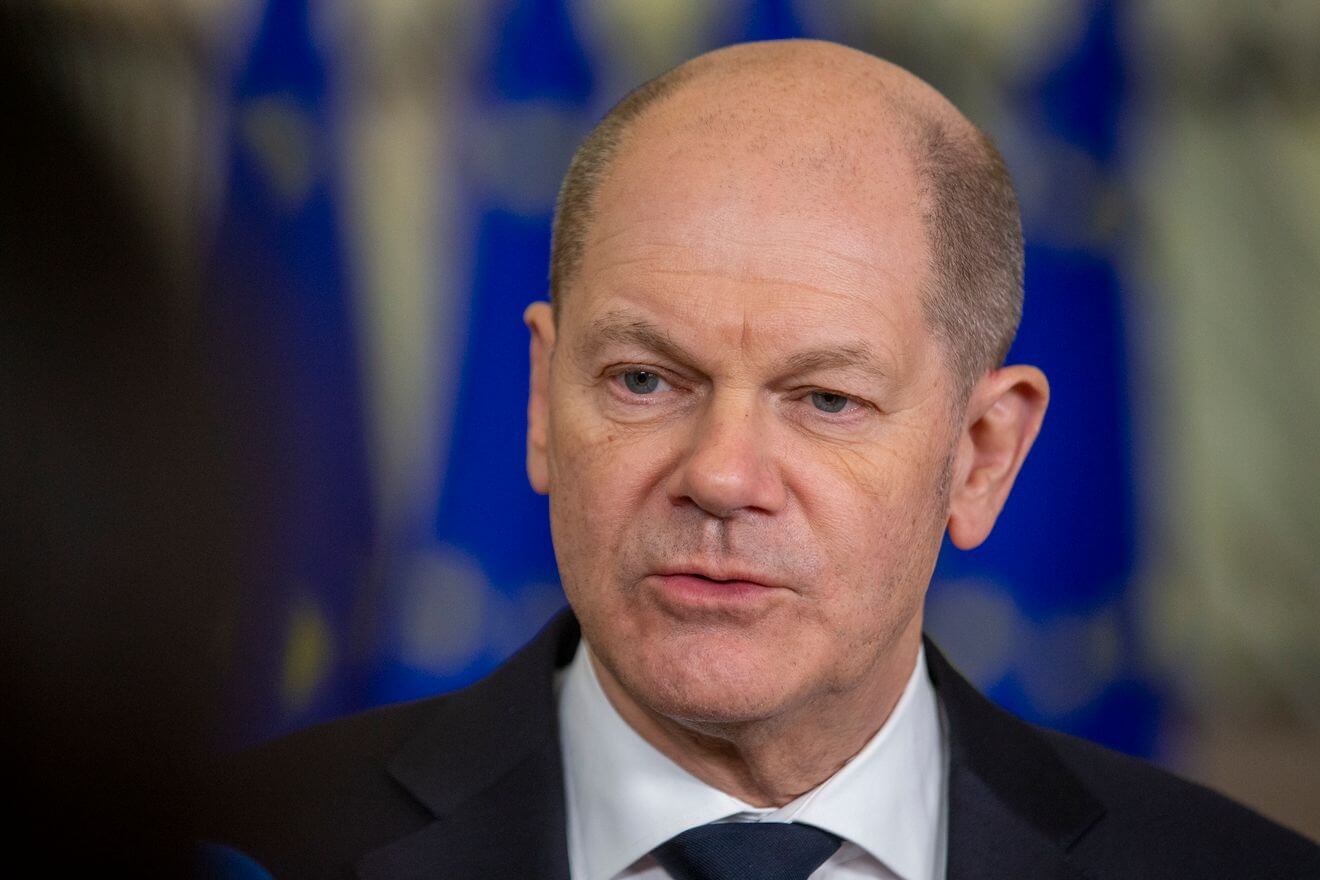On Thursday, German Chancellor Olaf Scholz opposed the inclusion of the SWIFT international payments system in the new European Union (EU) sanctions against Russia, after Moscow recognised Luhansk and Donetsk in eastern Ukraine as independent republics and launched a full-scale invasion. The Society for Worldwide Interbank Financial Telecommunication (SWIFT) is crucial for Russia’s oil and gas sector, as it connects thousands of international financial institutions.
On his arrival at the European Council meeting called by President Charles Michel on Thursday to discuss the escalating Ukraine crisis, Scholz said that the EU needed to impose further sanctions. However, when questioned about banning Moscow from using SWIFT, Scholz expressed his unwillingness, saying, “In terms of unity and determination, it is very important that we decide on the measures that have now been prepared over the last few weeks, and reserve everything else for a situation where it is necessary to do other things as well.”
Scholz’s opposition comes after Ukraine’s Minister of Foreign Affairs, Dmytro Kuleba, urged the Union to block Russia from the SWIFT network. Upon seeing the EU’s reluctance to adopt the proposed measure, Kuleba expressed his anger and displeasure, warning that the “European and US politicians would have blood on their hands if they failed to impose the heaviest toll on Moscow by cutting Russia from the so-called Swift payments system.”
I will not be diplomatic on this. Everyone who now doubts whether Russia should be banned from SWIFT has to understand that the blood of innocent Ukrainian men, women and children will be on their hands too. BAN RUSSIA FROM SWIFT.
— Dmytro Kuleba (@DmytroKuleba) February 24, 2022
In response, Dutch Prime Minister Mark Rutte acknowledged that the issue of banning Russia from the SWIFT network is “sensitive” for some countries as it would have an enormous impact on them.
Likewise, United States (US) President Joe Biden also mentioned the Union’s reservations over including SWIFT payments systems in West’s latest sanctions against Moscow, noting, “It is always an option but right now that’s not the position that the rest of Europe wishes to take.”
For all the talk about massive sanctions, the EU could not agree a total ban on Russian bank access. It is still buying Russian gas and it did not agree to block Russia’s access to SWIFT.
— Ben Habib (@benhabib6) February 25, 2022
So much for standing shoulder to shoulder with Ukraine.
Hopeless.
On the contrary, British Prime Minister Boris Johnson wants Russia to be blocked from the SWIFT network, and reportedly raised the issue during a call with G7 leaders. An official statement from Downing Street said, “The Prime Minister welcomed Germany’s decision to suspend the Nord Stream 2 pipeline but said that allies must now make a concerted effort to bring the strongest possible sanctions to bear on the Putin regime.” The statement added that Johnson wants to coordinate measures on SWIFT with the EU and US.
During Thursday’s meeting in Brussels, EU leaders aimed to reach a consensus on sanctions against Moscow for launching a full-scale invasion of Kyiv, during the early hours of Thursday. The EU’s new punitive measures target Russian oligarchs, members of the parliament, and Belarus’ elites over their involvement in the invasion.
Heads of Mission of the EU & its Member States stand in solidarity with #Ukraine Ambassador.
— Ugo Astuto (@EUAmbIndia) February 25, 2022
🇪🇺 condemns in the strongest possible terms the Russian Federation’s unprovoked & unjustified military attack. 🇪🇺 is united in its solidarity with Ukraine & its people. #StandWithUkraine pic.twitter.com/qpPWOLqxou
European Commission President Ursula von der Leyen said, “These sanctions will suppress Russia’s economic growth, increase the borrowing costs, raise inflation, intensify capital outflows and gradually erode its industrial base. We want to cut off Russia’s industry from the technologies desperately needed today to build a future.”

